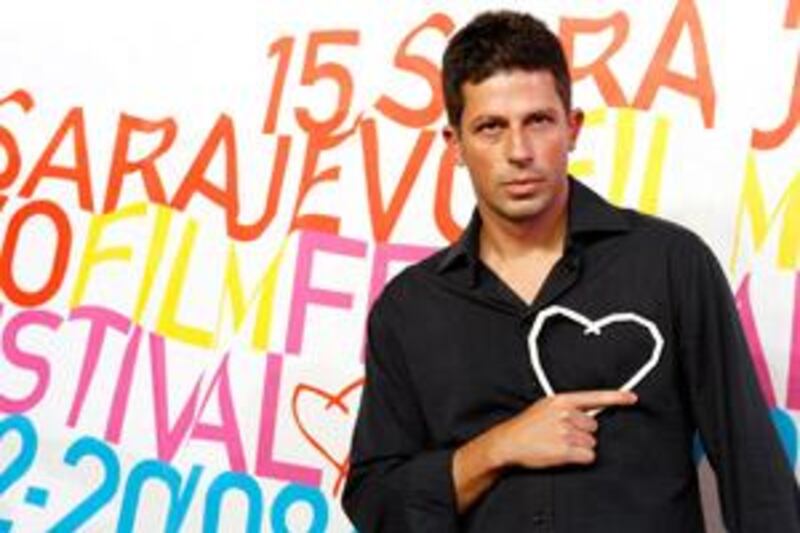Vladimir Perisic was born in the Serbian part of the former Yugoslavia in 1976. Given the turbulent history of the region it's unsurprising that the director has made a film about young men at war. No mention is made in Ordinary People of where the action takes place, which country the men are fighting for or who they are fighting against. However, given the director's nationality and the accents of the cast, it is implied that the war being depicted in this story is that which raged after the break-up of Yugoslavia.
The young director who graduated from the prestigious La Fémis film school in Paris, speaks English with a French accent. Of his decision to be vague about what war the soldiers in his story are fighting in, he says: "This film is not a historical document. That we choose some kind of abstraction is for the reason that I was curious to understand and ask myself questions about what happens to an individual in a war situation. The work on Yugoslavia must be done by historians and this is not done, so I cannot do this for them."
The individual that the director focuses in on and asks the audience to empathise with is Dzoni, played by Relja Popovic. He is a 20-year-old man who has recently joined the military, as much out of boredom as anything else. He and his comrades travel by bus to an abandoned farm where they must await further orders. When he is asked to be part of an execution squad, Dzoni's reservations about the brutality around him give way as he acclimatises to the horrific job at hand.
Perisic points out that he was at pains to make the lead character likeable, arguing: "This guy is ordinary. He is put into a situation and a condition and I want you to empathise with him. It is putting uneasy questions to the spectator, because he has to ask himself what action he would take in a similar situation. I didn't want to push the opinions themselves and I definitely didn't want to do what Michael Haneke does, who says he puts these questions in the movie so that he can put the spectator in a situation where he can reproach him later. I find this approach very catholic, very inquisitive and very Austrian. It's why this film has a distance and coldness."
That distance and coldness is reflected in long, static takes that are from time to time punctuated with moments of brutality. It's an approach that has led to Perisic being compared to Bruno Dumont, the French director of La Vie de Jesus and L'Humanite. The slow passage of time and the numbness of waiting are central components of the movie. One of the things the 33-year-old director is interested in exploring is how an individual copes in a group stress situation. He cites PG Zimbargo's study on the Stanford Prison experiment as one of his main points of research. He also looked at the work of the Yale University psychologist Stanley Milgram, who conducted experiments that measured the willingness of people to obey orders that conflicted with their personal conscience. He also read up on the experiences of some of the officers who took part in the dropping of the atom bomb in Hiroshima at the end of the Second World War. Perisic says: "I'm not interested in the question of guilt. I think I'm interested in the question of freedom, disobedience or revolt."
Yet Perisic did not want to make a psychological study. "We didn't take a psychological or realistic approach. I was aiming to see what happens at the surface. What I wanted from the spectator is a physical experience similar to that of the guy who commits a crime. I wanted to show that this man is not a monster. If I'd made him a monster it would have robbed the viewer of empathy with him. The spectator would be able to say this is happening somewhere else and some kind of thing that we cannot understand, which is often the case of the representation of the Yugoslavian war in the media."
A decade after the declared end of hostilities in Serbia, Perisic argues that only now are people able to talk about what happened. He explains: "I think it's very hard to talk about because there are a lot of wounds. We need time, first to understand that we are wounded and then to find the words to talk about it. I think this is a normal human process. If you are in a car accident, which is a small thing, the next day is not OK. Now for this huge disaster that took place over 10 years - the bombing of Serbia started in 1989, and now it's 2009. I think it takes 10 years of time to deal with something that took place over 10 years. But another problem is that with the Yugoslavia situation, it's not transparent. We still don't really know what happened. What we know is what we got from the media and that was very shocking - violent things that are difficult to comprehend."
Perisic's film is a small step in the journey to understand how and why the atrocities took place.






